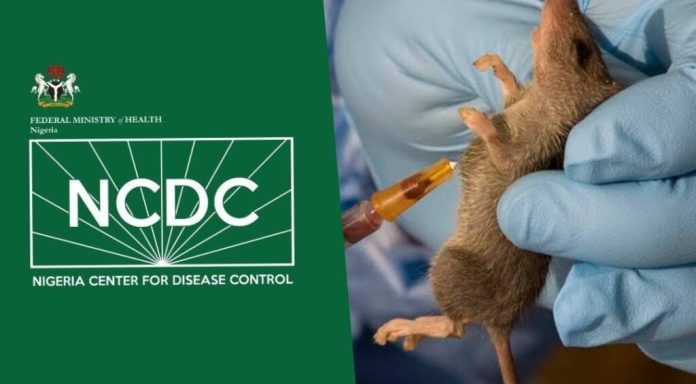By Blessing Otobong-gabriel
Nigeria Centre for Disease Control and Prevention, NCDC, has confirmed the spread of Lassa fever cases in 18 states.
NCDC’s latest epidemiological report said 535 cases have been confirmed, with 127 deaths recorded.
The affected states include Ondo, Bauchi, Edo, Taraba, Ebonyi, and several others.
The agency has intensified its response efforts, including enhanced surveillance, contact tracing and infection control measures.
According the the agency, “the current case fatality rate stands at 18.8%, slightly above the 18.5% recorded during the same period in 2024.
“Six states, Ondo, Bauchi, Edo, Taraba, Ebonyi and Gombe reported 15 new confirmed cases in week 14, a marginal increase from the 14 cases reported the previous week. Ondo, Bauchi and Edo States remain the most affected, accounting for 71% of all confirmed cases. Of these, Ondo alone recorded 30%, Bauchi 25% and Edo 16%.
“So far, Lassa fever has affected 93 local government areas across the 18 states. The most affected age group remains young adults between 21 and 30 years, with a median age of 30. The male-to-female ratio among confirmed cases is 1:0.8.
“Notably, no healthcare worker was infected in the current reporting week, although 20 have been affected cumulatively in 2025.
“NCDC has also recorded a decline in the number of suspected cases compared to last year, suggesting some progress in surveillance and response.”
It said it has activated the multi-sectoral Incident Management System at the national level, collaborating with partners to strengthen case management, infection prevention, laboratory testing and risk communication.
“Rapid response teams have been deployed to the affected states and essential commodities, including personal protective equipment and antiviral drugs, have been distributed.”
The agency also identified significant challenges, including late presentation of cases, high treatment cost, poor environmental sanitation and low awareness in high-burden communities.
It urged the public to practise good hygiene, avoid contact with rodents and seek prompt medical attention if symptoms such as fever, vomiting, or unexplained bleeding arise.





